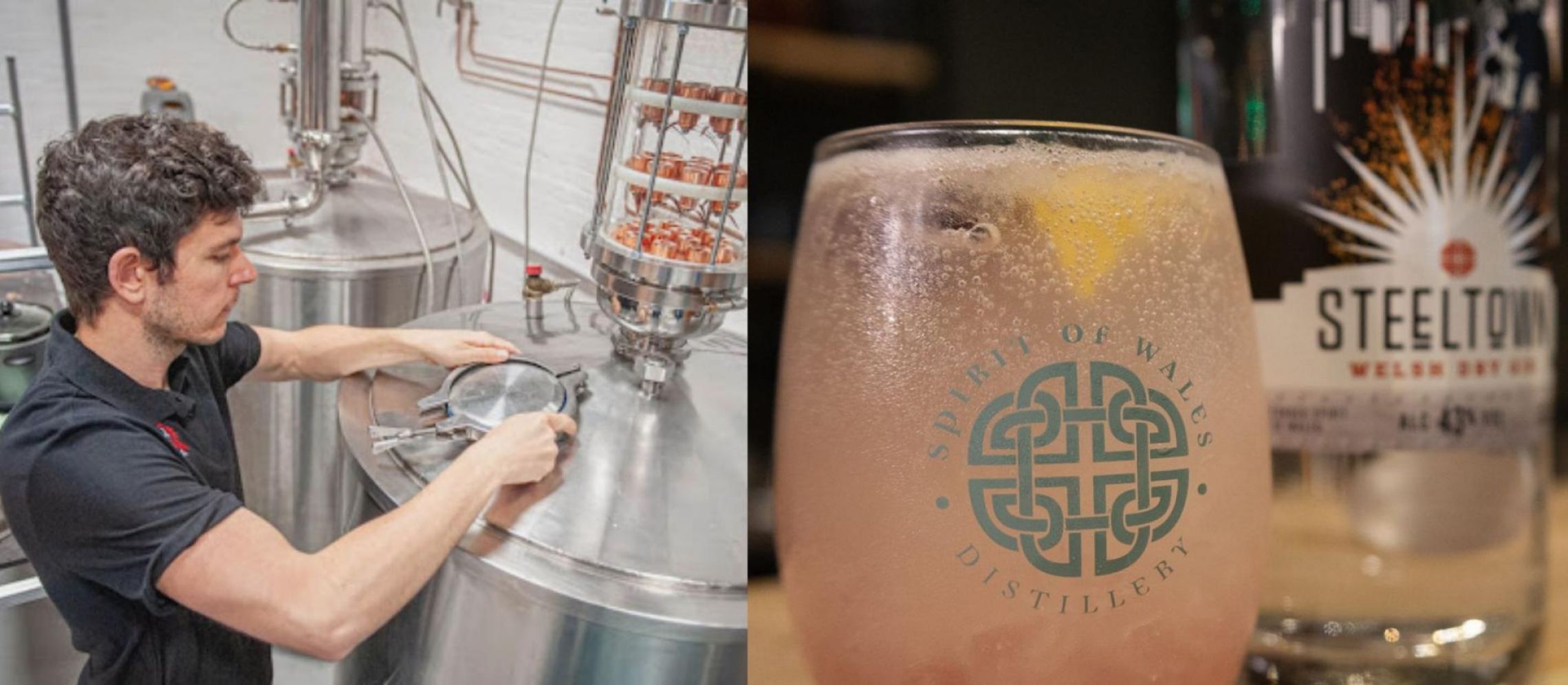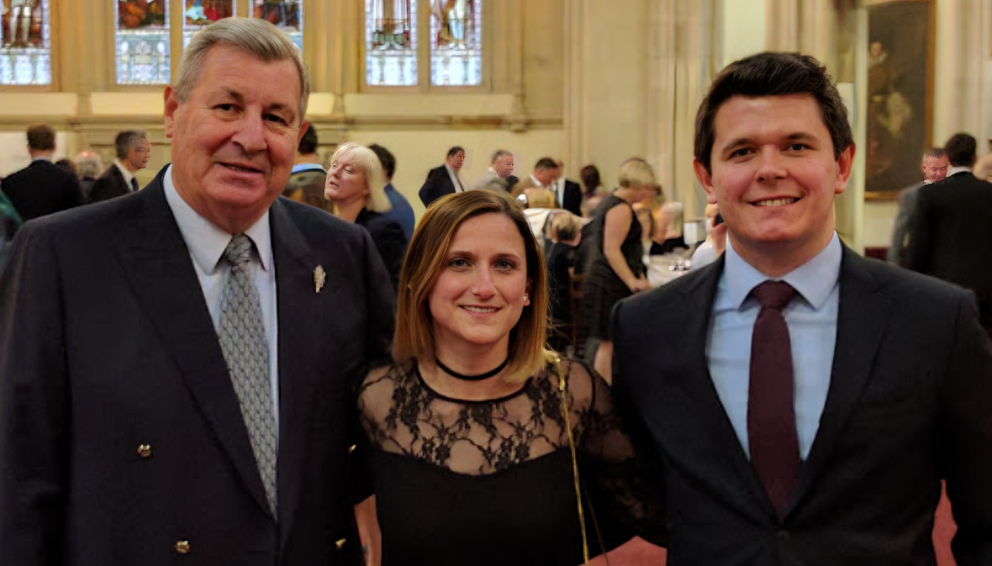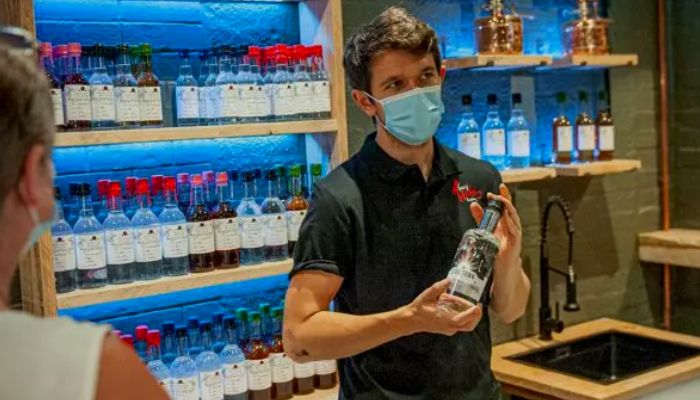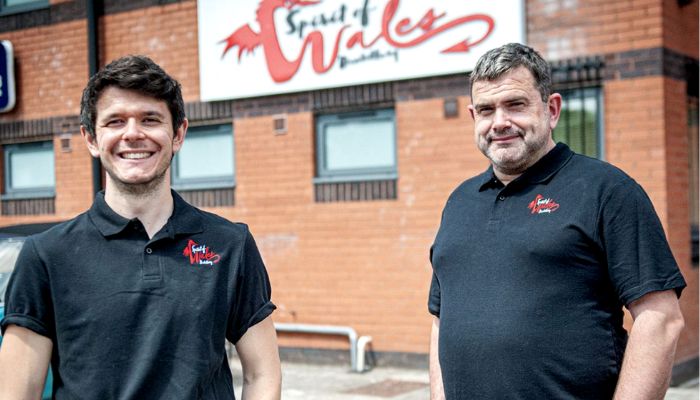Submission Deadline
28 February 2026
Judging
Date
24 & 25 March 2026
Winners Announcement
22 April 2026
28 February 2026
24 & 25 March 2026
22 April 2026

James Gibbons is a talented and dedicated distiller who has worked on the production teams of three prosperous start-up distilleries, creating a variety of award-winning spirits. He is actively engaged in the creation of a variety of rums, gins, and vodkas and is currently working on the installation of molasses to glass in The Spirit of Wales distillery. In this interview, James discusses his work in the drinks business
My interest in the beverage industry came about while studying at university. At the time, a wealth of smaller breweries opened up all over the UK, and seeing what could be done by a small team on a small scale captured my imagination. Having worked briefly in the coffee industry on an industrial placement, I fell in love with understanding the science behind the creation of flavor and quickly carried the curiosity gained through appreciating the flavor of coffee to the beers, wines, and spirits I saw being made locally.
I was extremely lucky to start my career in distilling at the Copper Rivet Distillery in Kent straight after graduating with a Masters's Degree in Chemical Engineering. It was a brilliant experience, learning the ropes of brewing and distilling from the Head Distiller, Abhi Banik, as we spent the first few months getting the equipment commissioned, refining recipes, and finally creating our first batches of Vela Vodka and Dockyard Gin. It was an extremely rewarding experience to see the grain that was harvested by our local farming partners, Burden Bros, being turned into award-winning spirits in such a short space of time.
As soon as we had built up a good stock of vodka and gin, we got to work distilling and barrelling our first batches of Masthouse Whisky – with these first few batches finally being bottled by the team over the past year or so.
Towards the end of my second year at Copper Rivet, I took up the opportunity to move over to Mallorca to help Byron and Amber Holland bring their dream of setting up Mallorca Distillery to life. Again, we worked with a handful of local farmers, this time to grow and harvest a selection of the botanicals to be used in Palma Gin. Later in the year, we extended the range to include the barrel-rested Palma Spiced Gin, created using locally sourced wine barrels. Palma Vodka came soon after, using Flor de Sal harvested on the island as a means to add minerality to the local water used in the reduction of the spirit.
With the continuing disruption caused by the COVID pandemic, I made the difficult decision to leave Mallorca to be closer to my fiancée and family based in the UK. Shortly after returning, I was approached by Daniel Dyer, who was looking to open a new distillery in South Wales, and we quickly set about planning Spirit of Wales Distillery. Just over a year in, we have made great progress in launching Steeltown Gin and Vodka, as well as Dragon’s Breath Spiced Rum.
My role at the Spirit of Wales is quite broad and, as a result, from day to day it can be very varied. Towards the start of the project, I was focused on the setup of the distillery, from equipment and process design to the planning of a bar area and a range of tours and experiences. Now, a lot of my time is spent on planning, keeping track of production, and ensuring that key performance indicators are being met; more paperwork than most people imagine. On top of this, I like to make time for new product development every week. It's always useful to have a good pipeline of spirits for limited distillery releases, as well as having new ideas to showcase to white-label customers.
After working for 6 years in distilling, I still feel new to the spirits industry—there is still so much that I want to learn about and get involved in. Although from the outside, it can seem that the spirits industry is focused on traditions and keeping up with expectations, there have been a lot of product and process innovations in the last few years. Importantly, I feel this has opened up the industry to a wider audience and created an abundance of choices for the consumer. I am happy to see positive movements in attitudes towards drinking and that the spirits industry is now playing an active role in the development of exciting new low-alcohol options.

I love the hands-on nature of brewing and distilling. Firstly, from the viewpoint that even with advances in technology and the size of the spirits industry today, the crafting of spirits still involves so much hands-on input from people. Secondly, I enjoy being active at work, and being a distiller enables me to balance my time at a desk with time on my feet.
On a day-to-day basis, the nature of working in production means that I spend the majority of my time at the distillery, usually wishing for a bit more time than I have to keep up with demand. That being said, I have had plenty of opportunities to travel both locally and internationally while working as a distiller, and attending several conferences and trade shows. Most of my time spent catching up with other distillers and visiting other distilleries is done while traveling outside of work – it’s usually the first thing I look for when I am somewhere new. I also maintain good contact with and visit both Copper Rivet Distillery and Mallorca Distillery whenever I can.
At Spirit of Wales, we ferment and distill a proportion of our rum on-site and also work with a couple of distilleries to source the other alcohols we need for our various products. In an ideal world, we would produce everything that we need ourselves—but being a small business, we have to strike a practical balance between using what we produce ourselves and what is produced by partner distilleries to ensure we can deliver a good value spirit to our customers. There is still a lot we do in-house with our processes and recipes that make our spirits unique to us.
Fermenting and distilling spirits from scratch is what I enjoy the most, so at every stage in the development of the business, we ask whether it is the right time to bring more of this production in-house and continually make plans to do so.

I enjoy making whisky the most. At Copper Rivet, we were lucky to have the flexibility to produce whisky the way that we wanted due to the distillery’s location in England, where there were no strict rules governing how exactly whisky should be made at the time. Furthermore, we had great raw materials to work with using the barley, wheat, and rye grown for us by Burden Bros within a 25-mile radius of the distillery. To finish things off, we had both a pot still and a column still, designed in-house, that allowed us to be creative with how we brewed and distilled the range of whiskies that we put into the cask.
We’re proud to have used entirely second-hand equipment for both our fermentation and distillation processes, with a few new modifications made to meet our requirements, and I think that this must be unique. This in itself has been a bit of a challenge, with a lot of time spent reconditioning, modifying, and commissioning this equipment. Starting up during the middle of the COVID Pandemic created some challenges too, from working safely with some contractors on site, to rapidly increasing raw materials pricing and continued delays to when we would be able to offer our experiences to customers for the first time.
A good distiller has to have a lot of patience, close attention to detail, and a first principles mindset, founded on a well-practiced problem-solving and numerical-based skill set.
My advice to a new distiller would be to write everything down, including what you did and the reasons you did it. Having a good journal to look back on helps in so many ways, whether it’s bringing to life a once scrapped trial recipe or reminding yourself of supplier details.
Typically, few people know more about a spirit than the distiller, and for this reason, they can play a valuable role in the marketing and sales of a spirit. Helping to communicate the unique details of a spirit is an extremely important role that the distiller can play, working with the wider team to create compelling marketing and sales material.
When I get a chance, I enjoy running tours at the distillery or getting out to help at local food events and markets. It’s brilliant to also get feedback directly from customers and to discuss spirits with like-minded individuals.
I find myself drinking less and less, so when I do drink, I like to try something new whenever I can. Having just returned from Portugal, my favorite drink recently was the caipirinhas I shared with my wife next to the beach of Ilha Armona.
Share your most embarrassing moment.
Nothing, in particular, comes to mind, but I am sure it likely involved having a few too many drinks.

I am working towards formal brewing and distilling qualifications with the Institute of Brewing and Distilling and am aiming to qualify as a Master Distiller with them within the next 5 years.
The biggest personal goal for me over the next 5 to 10 years is to be fitter in my 30s than I was in my 20s. I’ve still got a year to go, but the progress I have made in the last year has got me off to a head start.
I think the gin industry will continue to see growth, and this will largely continue to be driven by creative recipes with provenance and through reaching a larger audience with lower alcohol offerings and RTDs.
Interviewed By: Vidisha Dewan, Beverage Trade Network
Show your spirits where it matters. Get your products tasted by top bartenders, buyers and experts at the London Competitions — enter now.